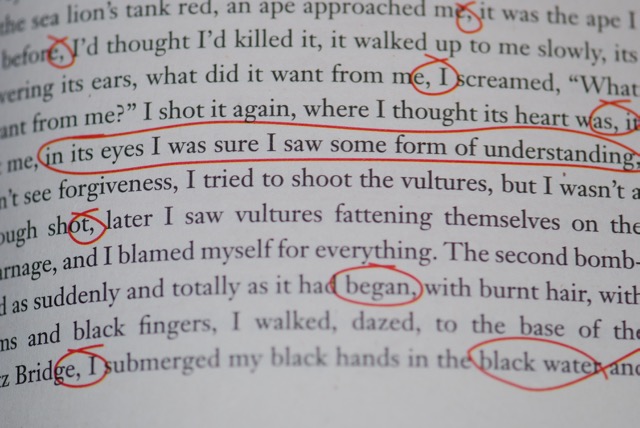Let’s take a look at Extremely Loud and Incredibly Close by Jonathan Safran Foer from a writer’s perspective.
This post contains spoilers.
Extremely Loud & Incredibly Close by Jonathan Safran Foer
(*Amazon Affiliate link)
Summary: Nine-year-old Oskar Schell’s father died in the World Trade Center on 9/11. When he finds a key hidden in his father’s closet, he thinks it is part of a scavenger hunt game he and his dad played. This impels Oskar to go on a quest to find the lock that the key fits.
Genre
Extremely Loud & Incredibly Close is a work of literary fiction.
Discussion
Normally I would go into the characters and setting of the book, but for this novel I’m going to take a different tack and jump right into discussion.
In the end of the book Oskar discovers the reason that his mother has allowed him to wander around the city without asking where he was going or even seeming to care about what he was doing was because she knew exactly what he was up to all along. She had talked to everyone he went to visit before Oskar arrived. She made sure he was safe by acting behind the scenes. His journey was an illusion orchestrated by his mom who assumed the role of protector and also puppet master.
Oh, the irony. As a reader, I felt every bit as manipulated by the author as Oskar was by his mother. I was supposed to admire the clever way Foer played with the text and design. My, pages 121-123 are blank. Isn’t that such a statement? So bold.
Pages 208- 216 are covered with red editor’s marks. (Well, sort of. They aren’t the marks a copy editor would use.) “How ingenious,” the reader is supposed to say. How innovative.

Why do I feel manipulated?
As a writer, the question becomes why does this work of fiction leave me annoyed whereas another novel, equally a work of complete fiction, can draw me in and make me completely forget the world I’m in for hours?
I’m not saying I have this all figured out by any means, but at least part of it is ego. In this novel Jonathan Safran Foer’s ego is everywhere. He wants you to admire his brilliant writing, not enjoy it. The author uses his gifts — and he is very talented — to show off, whereas another equally talented writer would step back and let the characters tell the story. You’ve probably noticed this with actors, too. Some charismatic actors always steal the show by being themselves regardless of the role. Do you ever forget that it’s Bruce Willis or Will Smith on the screen? Other sublimely gifted actors inhabit their characters so fully that the members of the audience suspend disbelief. They believe they are watching real people for the time the characters are on the screen.
The way Foer defies writing convention so blatantly is also part of it. My life is busy and I have limited time to read. As a reader, I don’t want to spend my precious hours trying to figure out the odd grammar and syntax. Instead, I want to read. I want the words to disappear and the images to roll through my head like a movie.
Every novel we’ve read for this challenge has taught me something that I hope will make me a better writer. The message I learned from this one is to be kind to your reader. Leave your ego at the door.
Join us on social media:
- The Bestseller Code 100 Pinterest Page
- Twitter: #BestsellerCode100
- Facebook: Bestseller Code 100 Reading Group
- The full list is now posted on GoodReads
__________________
What are we reading next?
If you ever have questions about what we are reading next or when we’re starting the next discussion, check the 100 Book List tab in the navigation bar at the top of the blog. Links in the list go to the landing page from this blog where the discussion starts. However, this is an open-ended challenge so feel free to jump in with any of the books at any time.
The next book is number 51. The Art of Fielding by Chad Harbach (2011) – Discussion begins December 31, 2018
Literary Fiction





Leave a Reply